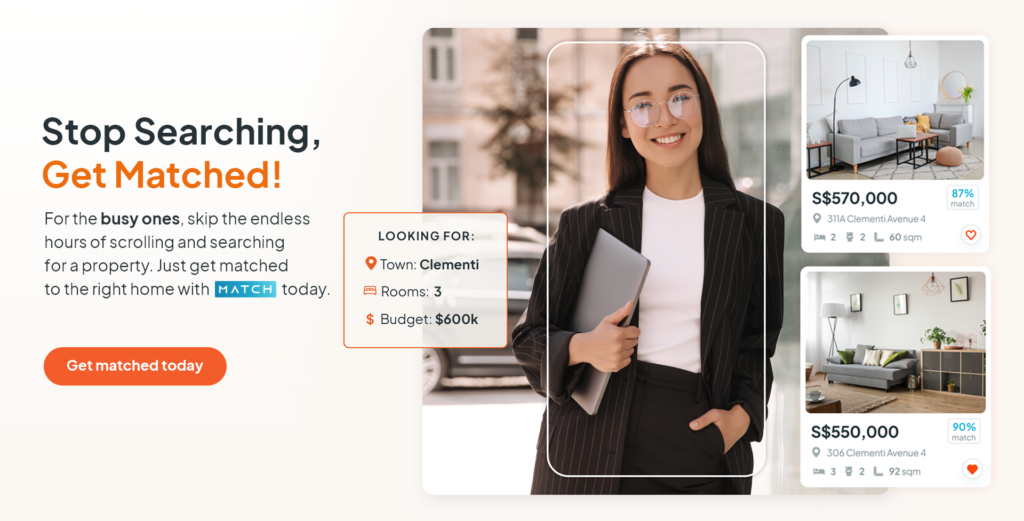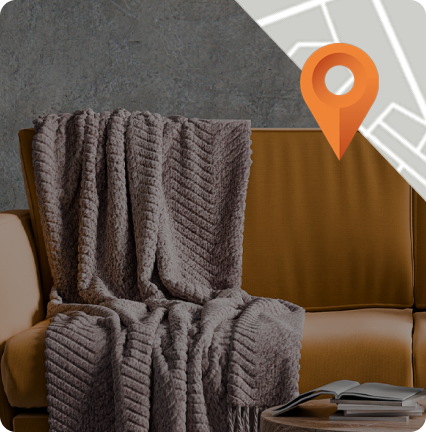Pets can bring us endless love, comfort, and joy. However, along with the cuddles and playtime comes a huge responsibility that should not be taken lightly. Living in Singapore adds another layer of consideration when it comes to pet ownership.
Depending on whether you live in an HDB or a condo, you may face specific rules and regulations that must be followed. Don’t fret, though! We’ve got you covered with the purr-fect guide to pet ownership in Singapore for HDB vs condo homeowners.
When it comes to owning pets in HDBs in Singapore, there are some important dos and don’ts that you should keep in mind to ensure that you and your furry friend can live harmoniously with your neighbours.
For HDB flats

Do:
1. Register your pet
Dog owners must have their pet licensed by the NParks Animal & Veterinary Service (AVS). You need not seek HDB’s approval to keep a dog, as long as it is of an approved breed.
2. Keep your pet on a leash in all common areas
This includes the corridors, lifts, and void decks. Under the Animals and Birds (Dog Control and Licensing) Rules administered by the Agri-Food and Veterinary Authority (AVA), all dogs, regardless of size, must be leashed when in a public place. Failure to do so can result in a fine of up to $200, or revocation of the dog licence, or both.
Keeping your dog on a leash is crucial for their safety. When walking your dog, you never know what unexpected situations you may encounter. Your dog may become startled, chase after something or someone, or even run out into the road.
Leashing your dog is also a matter of respect for others. Your pooch may be friendly and well-behaved, but not everyone wants to be approached by a strange dog while they are out for a walk. By using a leash, you are showing consideration for the comfort and safety of other people.
3. Clean up after your pet
It is important to always carry a plastic bag with you when you are out with your pet, whether you are taking them for a walk or bringing them to a public area. This is because your pet may need to relieve themselves at any time, and it is your responsibility to clean up after them.
Proper disposal of pet waste is crucial for maintaining a clean and hygienic environment. You should always make sure to dispose of your pet’s waste in the designated bins, which are usually marked with signs indicating that they are for pet waste. This helps to prevent the spread of disease and also keeps the area clean and pleasant for others to use.
4. Take good care of your pet
Provide your pet with adequate exercise and mental stimulation. Dogs that are bored or lack exercise may become restless and bark or engage in other disruptive behaviour. By providing your pet with regular exercise and activities that challenge their mind, you can help to prevent boredom and reduce the likelihood of disruptive behaviour.
5. Train and socialise your pet
Training and socialising your pet can help to minimise barking or other disruptive behaviour by teaching them appropriate ways to interact with people and other animals.
Training your pet involves teaching them basic commands, which can help you to control their behaviour in various situations. By teaching your pet these commands and rewarding them for good behaviour, you can help to reduce their tendency to engage in disruptive behaviour.
Socialising your pet involves exposing them to different people, animals, and environments in a positive way. This can help your pet to feel more comfortable in various situations, which can help to reduce anxiety and prevent them from misbehaving.
By combining training and socialisation, you can help your pet to develop good behavioural habits and become a well-adjusted member of your household and neighbourhood. This can help to prevent problems such as excessive barking, destructive behaviour, and aggression.
Important Update: You can keep up to 2 cats in your HDB flat soon

Keeping cats in HDB flats has long since been illegal, and those who are caught may be fined up to $4,000, though many homeowners still do so. The reality is that no action is taken unless neighbours complain. (And it rarely happens.)
But as of Dec 2 2023, Senior Minister of State for National Development Tan Kiat How announced that 2 cats will be allowed for each HDB flat. This is under a proposed framework that will be implemented in the second half of 2024. Currently, it states:
- Your pet cat will need to be microchipped and licensed. (Those who already own cats when the changes take effect can get their licenses for free.)
- If you’re a first-time cat owner, you will need to complete an online course on responsible pet ownership before you can be issued a license.
- If you belong to a low-income household or are renting a HDB flat, you can get free sterilisation and microchipping.
- You will need to ensure that your pet cats are kept in a safe environment by installing window grilles or mesh to prevent them from roaming or falling from height.
- Pet cats must also be kept on a leash in public.
You are encouraged to send your feedback on the proposed framework from now until Feb 1 2024 at https://go.gov.sg/cat-framework.
Don’t:

1. Keep unsterilised pets
Keeping unsterilised pets can lead to a variety of issues that can impact both the pet and the wider community. Unsterilised animals are more likely to engage in behaviors such as aggression and territorial marking, which can cause disturbances and even pose a danger to other animals and people.
In Singapore, the National Parks Board requires that all cats and dogs are sterilised by the time they reach 6 months of age. Failure to comply with this regulation can result in a fine. This measure is intended to help control the population of stray animals and reduce the risk of unwanted litters.
2. Allow your pet to roam freely
Allowing your pet to roam freely can pose a variety of risks and dangers to both the animal and others in the community. When pets are not properly contained, they may become lost, injured, or even cause accidents or injuries to people or other animals.
3. Disturb your neighbours with excessive noise or odour
Be considerate of your neighbours when living in a shared community, particularly regarding excessive noise and odour caused by pets. Train your dog to bark less, use sound-proofing materials, and keep your pet’s living area clean to minimise disturbances.
4. Keep illegal pets
As an HDB dweller, you face restrictions on the breeds of dogs that you can keep as pets. HDB provides a list of 62 small dog breeds that are approved for HDB living. This means that if you own a dog that is not on this list, you are not allowed to keep it in your flat.
Moreover, HDB allows only one such dog to be kept in your flat at any given time. There are also certain exotic animals that you cannot keep as pets in Singapore. These restrictions have been put in place for various reasons, ranging from public safety to the welfare of the animals. Among the animals that are prohibited as pets in Singapore are hedgehogs, iguanas, tarantulas, scorpions, star tortoises, snakes, salamanders, sugar gliders, and slow lorises.
These animals have been deemed unsuitable as pets in Singapore due to their potential to cause harm to humans and other animals. Moreover, some of these animals are venomous, while others may carry diseases that can be transmitted to humans. Additionally, many of them require specific environmental conditions to thrive, which may not be possible to provide in a typical Singaporean household.
For Condo Homeowners

While the Dos and Don’ts of owning pets in a condo are largely the same as in HDBs, here are a few points for condo owners to take note of.
1. Check the condo’s pet policy
One key difference is that condo developments are typically managed by private management corporations (MCST). As such, you may want to check out the condo’s pet policy. Some condos may have specific rules and regulations regarding pet ownership, such as breed or size restrictions, or the number of pets allowed. As long as the pet is legal and not an endangered species, there are usually no restrictions on the types of pets allowed.
Nevertheless, make sure you’re familiar with these rules before making any decisions. You don’t want to run afoul of your condo’s management and risk having to give up your furry friend.
2. Keep your pet safe
As a responsible pet owner, it’s important to keep your pet safe. Keep doors and windows closed to prevent your pet from running out, and make sure to use pet-friendly cleaning products to avoid any harmful chemicals. Additionally, make sure to always supervise your pet when they’re outside, and use designated pet areas such as dog runs or cat lounges instead of letting your pet roam freely in common spaces.
3. Find pet-friendly condos
If you’re in the market for a condo and are a pet owner, it may be worthwhile to consider pet-friendly condos. These condos, like Gem Residences with its pet pool, often tout pet amenities such as dog runs or pet washing stations, making it easier for you to take care of your furry friend. It’s important to note that these facilities may come with additional fees, so make sure to factor these costs into your budget.
4. Get your pet certified
In Singapore, some condos may require pets to be certified or registered to ensure that they are well-behaved and do not pose any danger to other residents. This is especially true for larger breeds or pets that may be perceived as aggressive, such as pit bulls or Rottweilers.
Certifications such as the Canine Good Citizen can demonstrate that your pet is well-trained and socialised. The Canine Good Citizen program is a certification offered by the Singapore Kennel Club that tests dogs on basic obedience skills.
Having your pet certified or registered can also make it easier for you to navigate your condo’s pet policies. For example, some condos may require proof of certification before allowing certain breeds or sizes of dogs. Having your pet certified will reassure both your condo’s management and neighbours that your pet is well-behaved and has undergone proper training.
Important Update: You can keep up to 3 cats in your condo soon
The cost of getting and taking care of a pet

This can vary greatly depending on the type of pet you choose and the level of care it requires. Generally, dogs are more expensive to own and care for than cats, and larger breeds can be more expensive than smaller breeds. In addition to the initial cost of getting a pet, there are ongoing costs to consider, such as food, grooming, and veterinary care. It’s important to budget for these costs and ensure that you can afford to provide your pet with the care it needs.
The cost of buying a pet in Singapore can vary widely depending on the type of pet you choose and where you purchase it from. Here are some estimated costs for dogs and cats:
The cost of a purebred dog from a breeder goes up to a whopping $14,000, while a cat can cost up to $12,000. Prices range widely for different breeds. Adopting a dog from a shelter or rescue organisation can be much more affordable, with adoption fees typically ranging from $70 to $350, while cat adoption can cost as low as $25 or up to $250. Sometimes you can even adopt a cat for free.
Other costs to note include:
| Pet food and supplies | The cost of pet food and supplies varies based on the type and size of the pet. For instance, dog food can come up to $2,760 a year, while kibbles for your cat or rabbit can cost up to $2,138 or $1,338 a year, respectively. |
| Veterinary expenses | The cost of veterinary care for pets in Singapore can be quite high. A routine checkup can cost around $40 to $70, while emergency treatment can cost thousands of dollars. Meanwhile, pet insurance (which only covers dogs and cats) has annual premiums that range from $74.90 to $750 per year. |
| Licence and registration fees | In Singapore, it is mandatory to licence and register your pet with AVS. Licensing ranges from $15 to $90 per year, microchipping costs $50 to $90, and sterilisation starts from $300 for dogs, $200 for cats, and $200 to $300 for small animals. |
| Grooming and boarding expenses | Depending on your pet’s grooming needs, you may need to spend money on grooming services, such as haircuts and nail trimming. This can cost anything from $40 to $350 per visit. Additionally, if you need to go out of town, you may need to board your pet, which can cost around $25 to $50 per day. |
The best places to live if you own or want to own a pet
There are some neighbourhoods in Singapore that are particularly pet-friendly. Areas such as Bukit Timah, East Coast, and Serangoon Gardens have plenty of open areas, green spaces and parks where you can take your pet for a walk or run. There are also condos in Singapore with unique pet-friendly features. Other neighbourhoods such as Holland Village and Tiong Bahru have plenty of pet shops and grooming services nearby.
If you’re on the hunt for a new home, don’t forget to explore each potential neighbourhood to find out if it’s a pet-loving community that offers pet-friendly perks, such as dog parks and pet stores, to make your furry friend’s life easier.
Looking for a pet-friendly home?

Let Ohmyhome’s smart data-matching technology MATCH you with the right home, according to your specific needs. Submit your preferences to us and our algorithm will filter all our available listings based on those, and we’ll WhatsApp them to you once we find a match. We’ll also send you relevant content that you can use for your research and inform your home-buying decision, so you no longer have to spend hours searching online for the information that you need. Because at Ohmyhome, we’re always by your side, always on your side.
Secure an appointment with any of our Super Agents by dropping us a message on WhatsApp or via our Live Chat at the bottom, right-hand corner of the screen.



































































